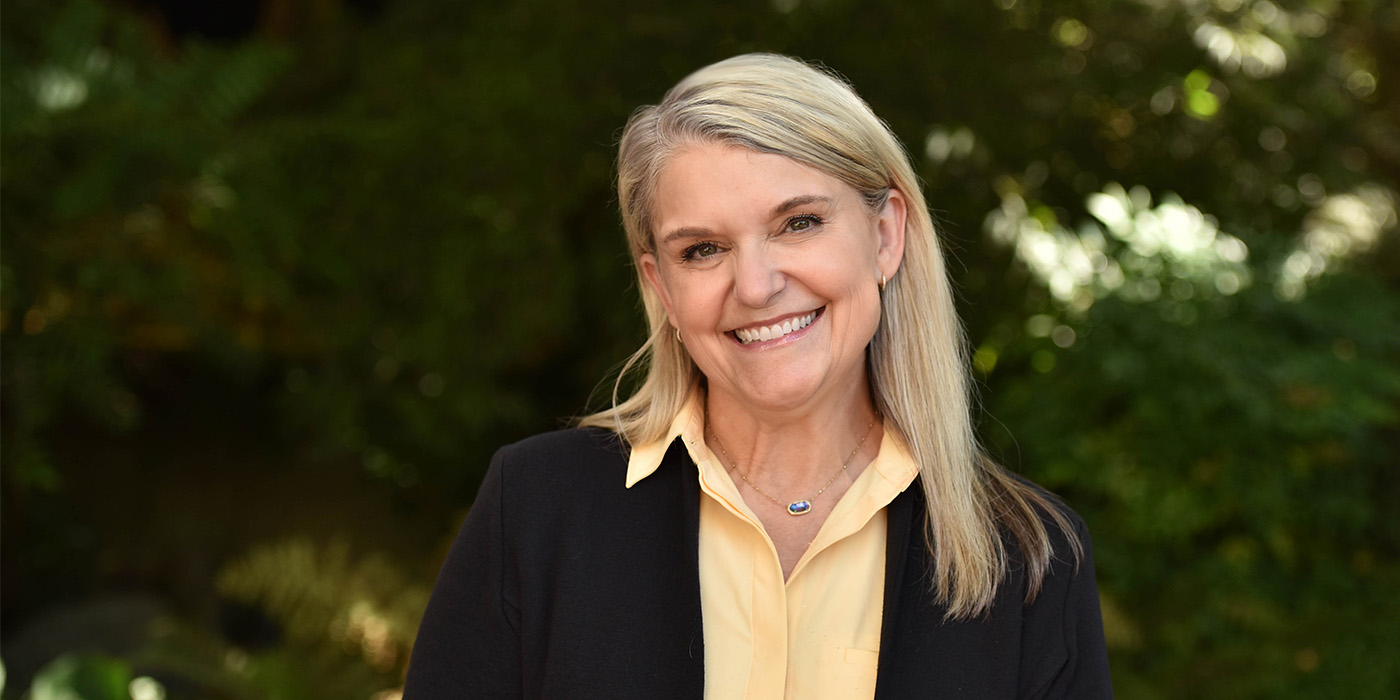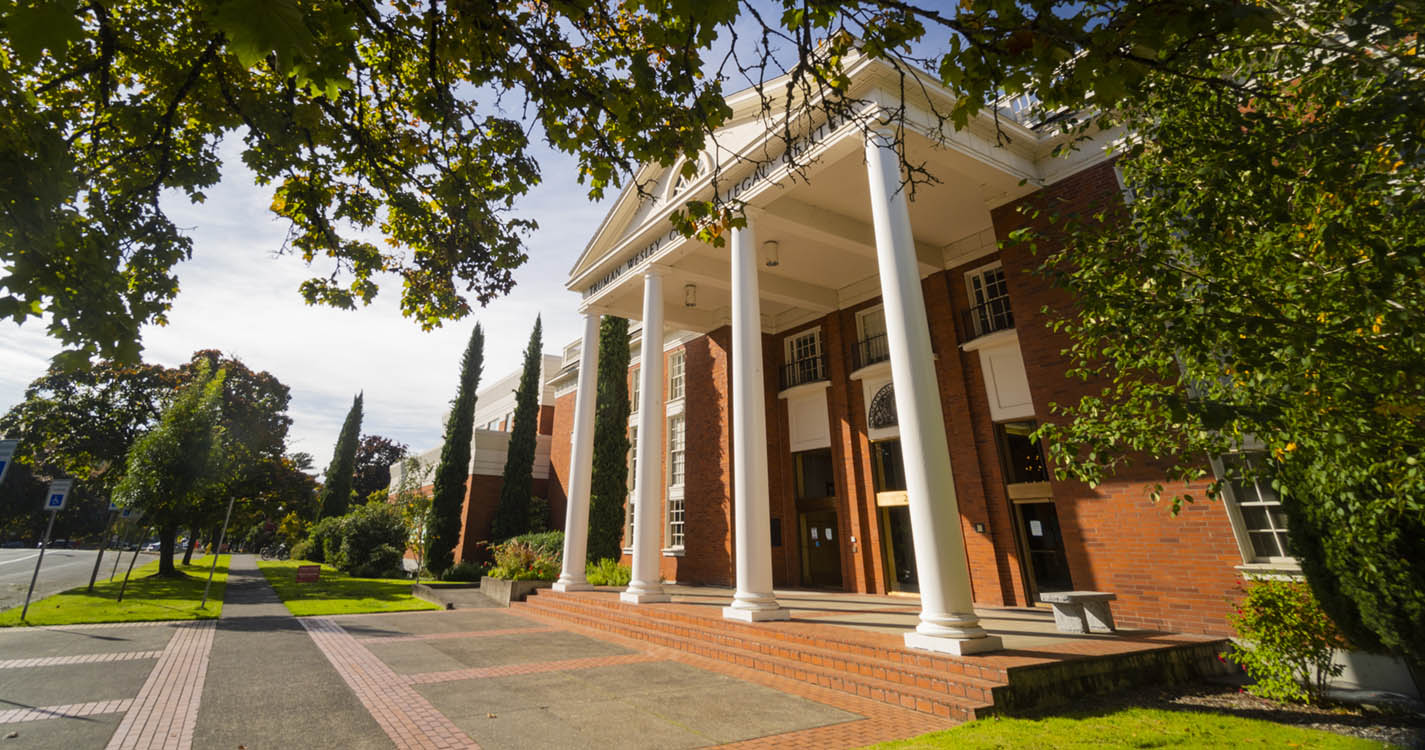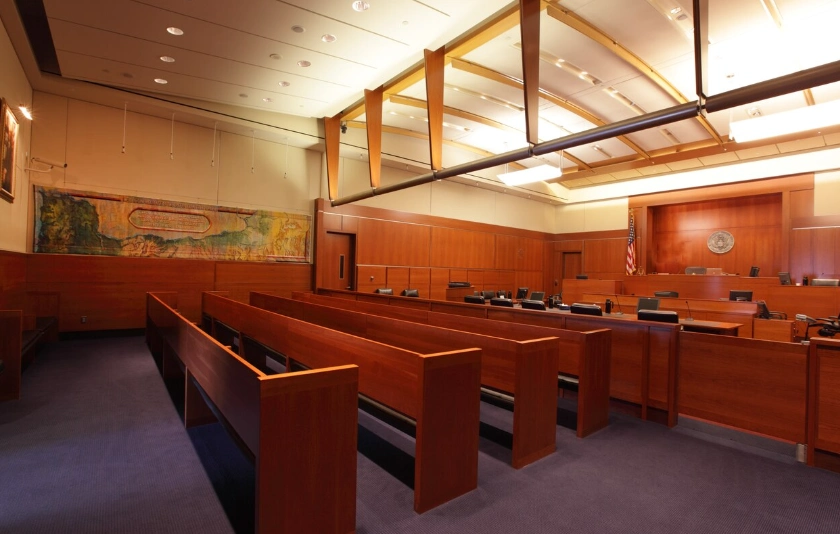Growing up in a small town, Professor Susan Cook JD’96 spent her summers working as an assistant at a local attorney’s office. When a friend’s parents tragically died, helping with their probate case piqued her interest in the field of estate planning and elder law.
Although she attended Willamette Law imagining herself as a tax attorney, her initial interest won out, and she pivoted toward working in public assistance and with underserved populations.
Following her graduation, she practiced privately in Salem, then joined Willamette as an adjunct professor teaching the Elder Law course in 2000. In 2012, she began teaching in the Trusts and Estates Clinic. After years of teaching in addition to her practice, she became a full-time member of the faculty in 2021. She now runs the Trusts and Estates Clinic herself.
Working with the Grand Ronde Tribe
Around 2012, Cook was introduced to the Grand Ronde Tribe northwest of Salem. Chief Justice Edwin Peterson, distinguished jurist-in-residence at Willamette Law, had a contact there who was hoping to find members some help with estate planning services.
To begin working with them, Cook had to gain their confidence. She started having students in the clinic take tribal members on as clients, building to about 10-15% of the clinic’s output before 2020.
“It’s not easy, because tribal members often don’t trust lawyers or government. They’ve been treated badly,” she explains. “In order to cultivate trust with them, really it was necessary to go to them and be present there, and that takes time, a few years to build up.”
When the COVID-19 pandemic happened, most work with the tribe took a pause. She and her students had to renew the relationship last summer, and since then, it has taken off. In 2022, 14 out of 32 plans completed were for tribal members.
“Now, except for one or two cases out of 30, all of our cases are tribal,” Cook says, “and we have 60 members on the waitlist.”
Being able to get hands-on, practical experience, while also filling the needs of the tribe, was impactful for Justin Roney JD’23.
“Probably the biggest question we got was, ‘How much is this going to cost?’” Roney says. “We were lucky enough to say ‘It’s free, you just have to come to meetings and answer some questions.’ They were clients who were really grateful that you were doing something for them.”
When a tribal elder learned he had a terminal disease, he knew he wanted to get his estate in order. Without much time, Ryan Foxx JD’23 worked through winter break in 2022 to help him accomplish his goal.
The clinic helped solidify Foxx’s interest in the Trusts and Estates field of law, while also providing a sense of giving back to others.
“Out of my six clients, four were from the tribe. All of them were a joy to work with,” he says. “It’s probably the thing I had the most fun with in law school so far — actually working with clients, getting them what they needed and seeing how happy they were. They mentioned it gave them a lot of peace of mind.”
Real lawyering experience
While in the clinic, Roney, Foxx and other students were given multiple clients and held meetings in the first few weeks of class. Their work consisted of drafting wills and durable power of attorney forms, writing advance directives for health care decision-making, and creating trusts, if appropriate. Cook says students know they will work harder in clinic than in a normal course.
While she supervises and is there to answer questions, she empowers students to be the lawyers they aspire to be.
“This is one area where there’s a lot of value in making mistakes,” Cook says. “I like to say I’m throwing students into the ‘deep end,’ but they have a life preserver. I may let them flop around a little — there’s so much value in that.”
Roney agrees with that analysis and says it was the best way to learn, rather than taking baby steps.
“We learn how to be a lawyer in class, but we don’t do that practical side of things,” he says. “Class over the last two years has built us up for that, and you don’t think you’re ready until you do it.”
As far as students’ willingness to prepare to be a lawyer, clinic offers the time if they are so inclined, Cook says.
“These are really self-driven students,” she says, “doing such good work for the world.”
As Roney thinks about opening his own trusts and estates practice after law school, his time in clinic showed him that he is ready to take on real clients once he passes the bar.
“A number of people go to law school and eventually want to open their own firm,” Roney says. “But a lot of them don’t. They’re either scared or haven’t gotten that real, practical experience and don’t feel comfortable. After taking the clinic, all of my doubts were eased, because I do have that client experience.”




